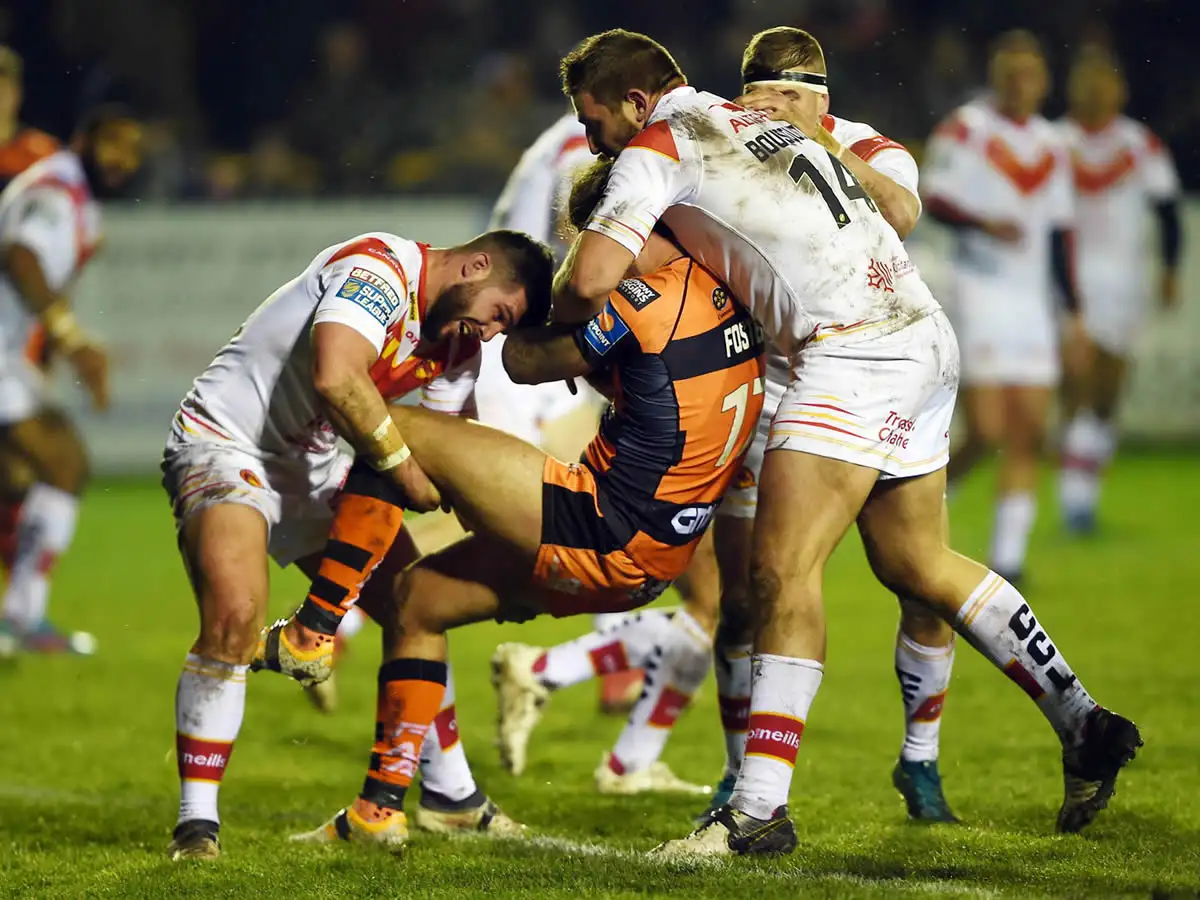Rugby League discipline: Time for change?

These days, rugby league players are often not given a sufficient disciplinary on the field, instead being given bans for subsequent matches. This divisive protocol was again on show in the recent opening round of Super League fixtures, and we have already seen bans for Ben Westwood and Toby King.
While those players contravened the rulebook in various ways, the lobbyists for on-field disciplinary action have been armed afresh while the new season is still in its infancy.
This compilation of ‘big hits’ from the last two years shows illustrates the fine margin between applause and a ban.
The ‘butterfly effect’ of missing stars
The main issue here is that the current system prevents star players from playing matches. Their inclusion – or lack thereof – has an impact on many more areas than many realise, including viewership, attendance and betting.
Indeed, its impact on the latter area can financially affect even those who have never touched a rugby ball in their lives. As evidenced by data provided by betconnect, the launch of a new tournament or league typically coincides with a spike in return on investments, with the week preceding the 2019 Six Nations seeing rugby union achieve a peerless ROI of 381.2% in key markets.
There is little argument against the fact that without key players, that figure would never have been attained. And so, it could easily be argued that it is in the interest of the sport – and those who bet on it in diverse ways – to more efficiently balance order with entertainment.
Rival merits
It’s also a move that can benefit rival clubs, with matches involving such never failing to top the bill in various rugby league markets.
For example, if Warrington played Wigan one week, and had two players banned for offences that weren’t dealt with at the time, they’d be banned for the following week. If their next game was against St. Helens, it would be St Helens getting the advantage of those players being banned, and not the team against which the actions were committed.
Bans are inevitable and happen in every sport but the level of banning prevalent in League seems like an outdated concept to some. For instance, Leeds received only a penalty from Westwood’s poor tackle on Konrad Hurrell, who then struggled with injury for the rest of the game.
Warrington and Wigan featured many stars in the 2018 Super League grand final, but the existing disciplinary system may have stopped that from being the case.
Is there a better system?
In light of the way the new Super League season has started, calls for referees to be given more support have been provoked afresh. As opposed to players getting immediate bans for yellow card offences, a points-based procedure is seen as a viable option, with harsher calls on the field to go with it.
There is also the problem that a lot of these bans are subject to calls from the Match Review Panel, which always carries an inherent risk of inconsistency and bias amidst calls. Ultimately, getting punishments right on the field – with fewer bans off it – will leave more star players on the pitch and prevent league from being consistently eclipsed by union in pro-betting circles.